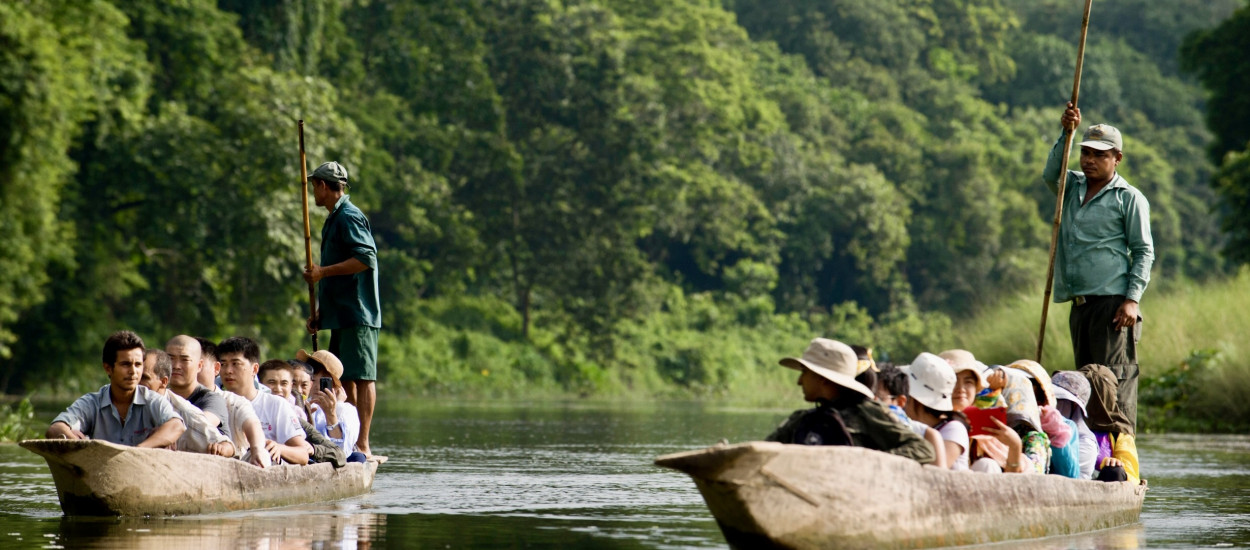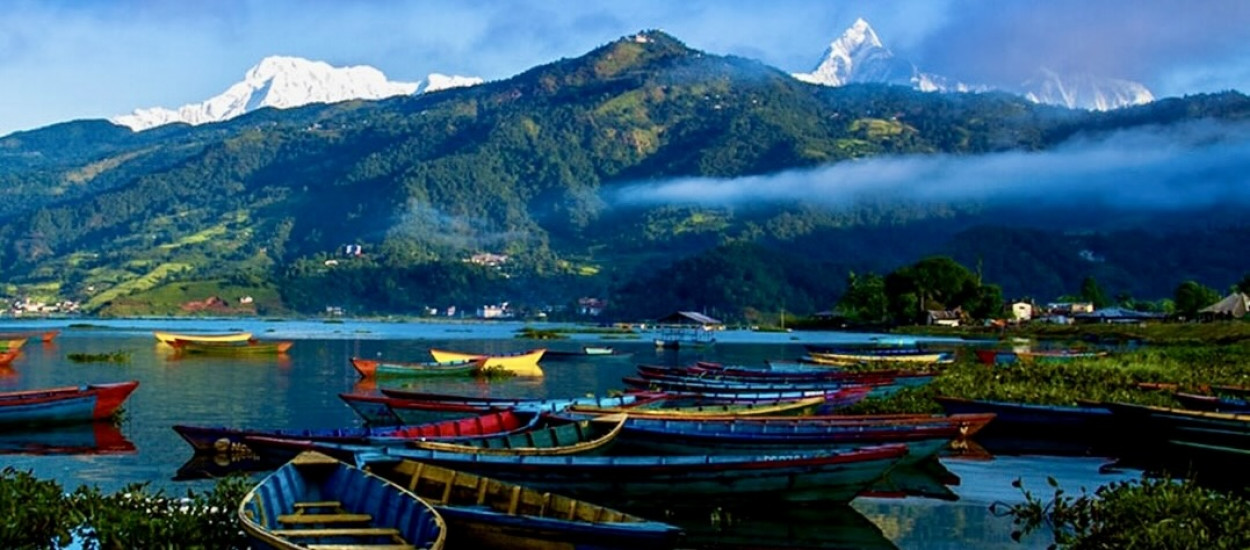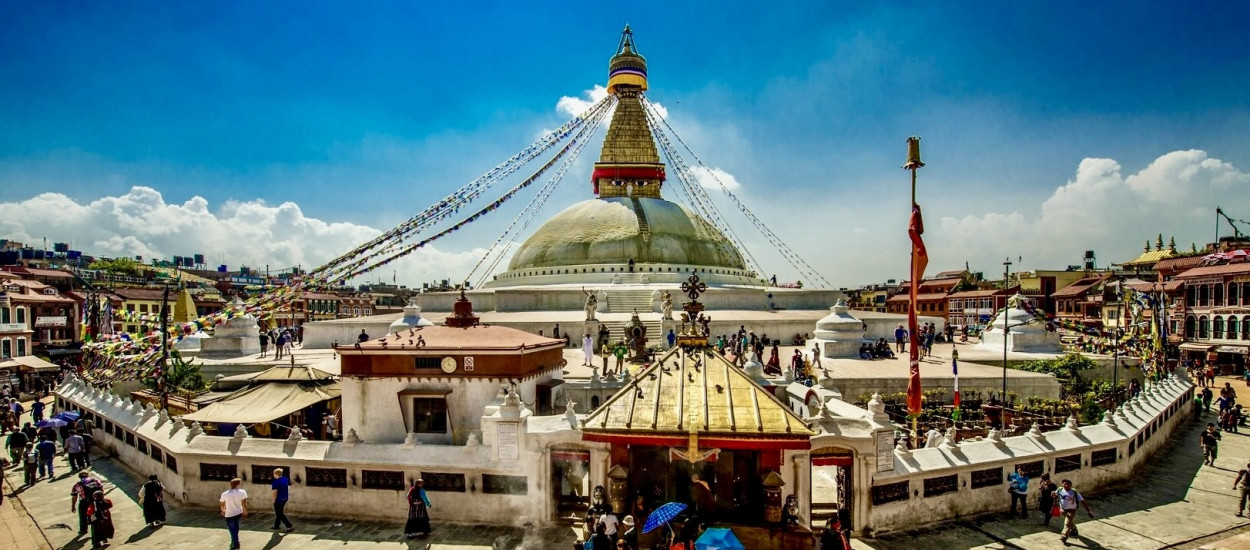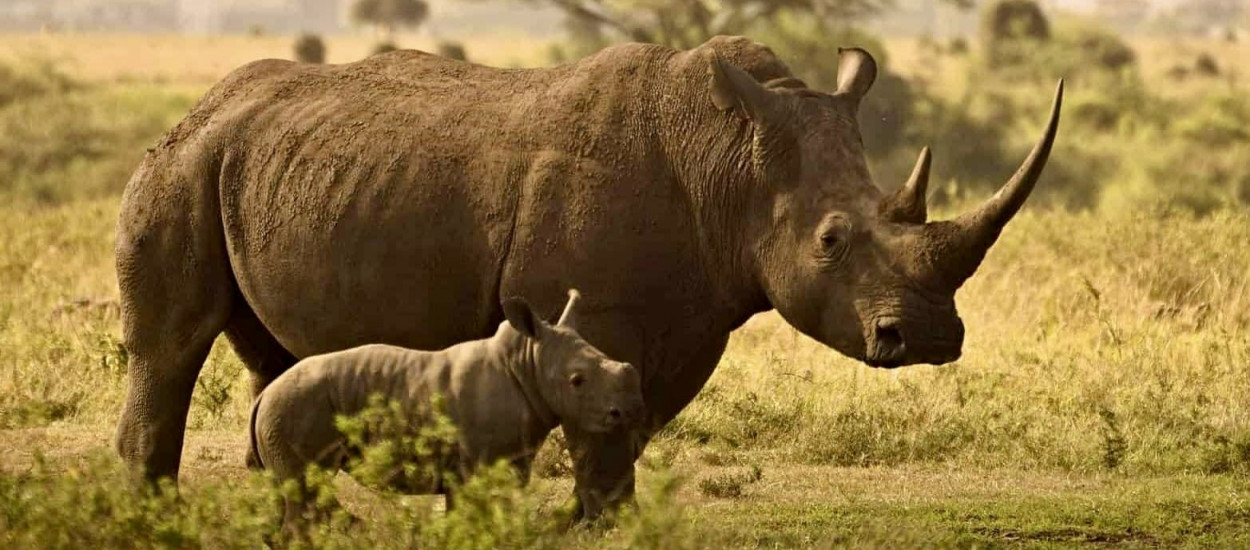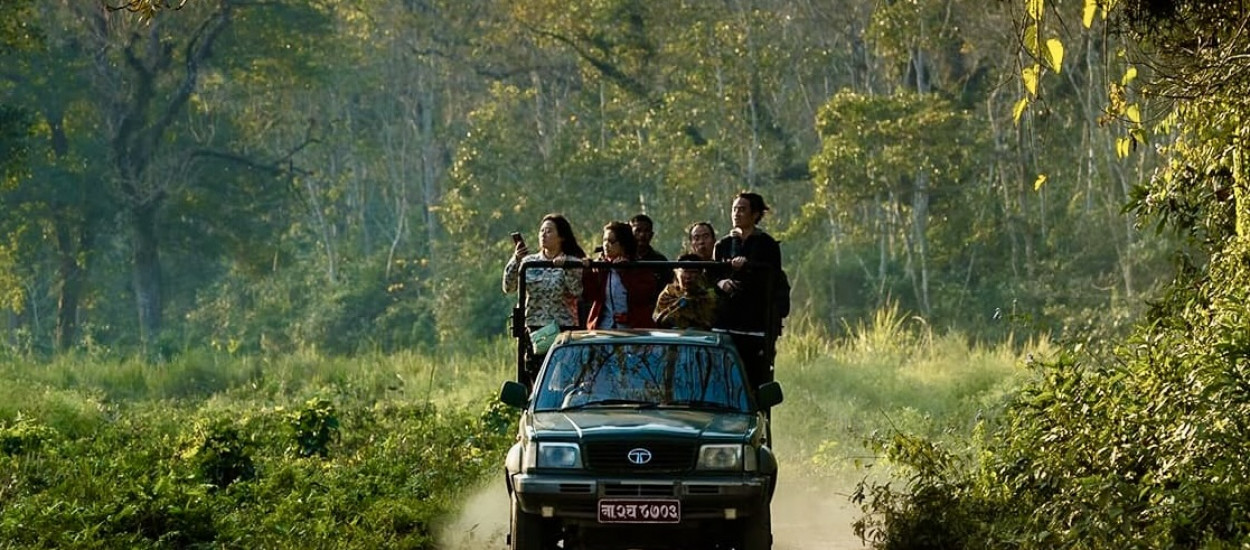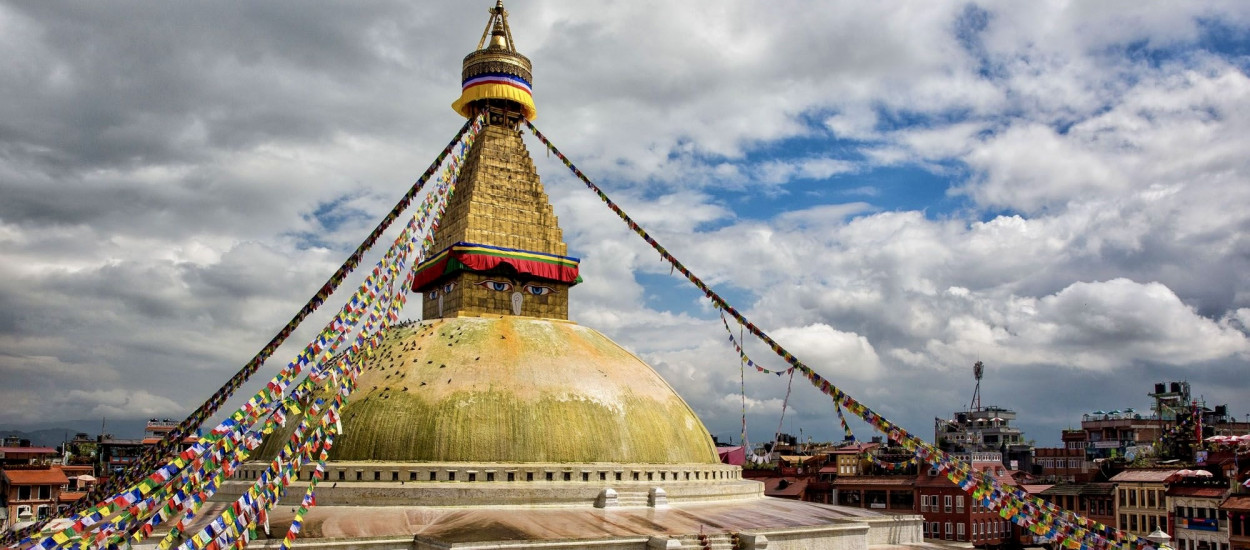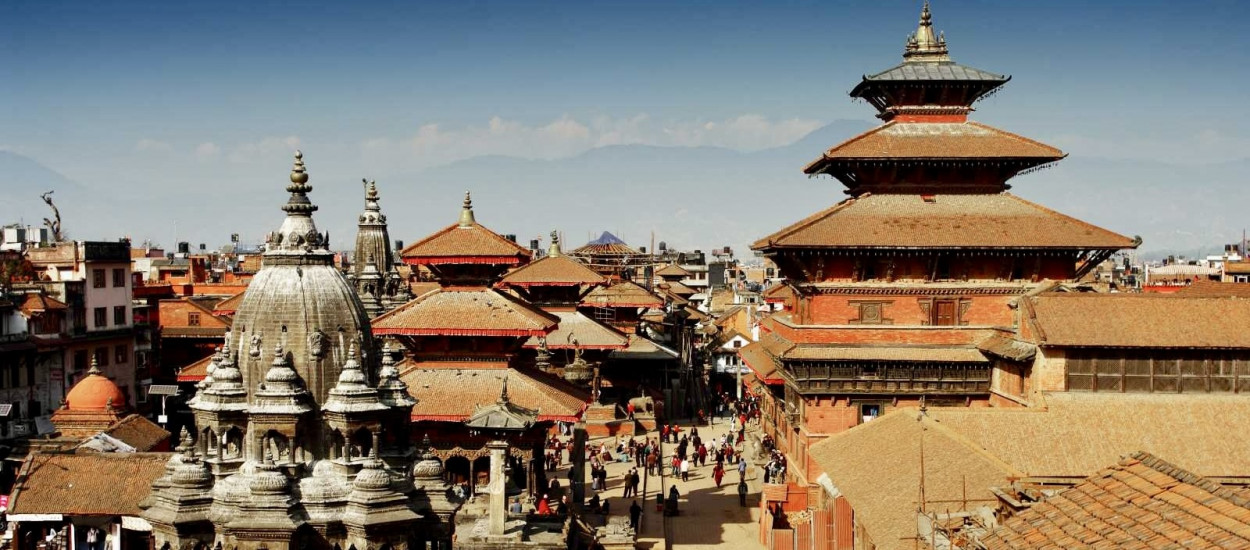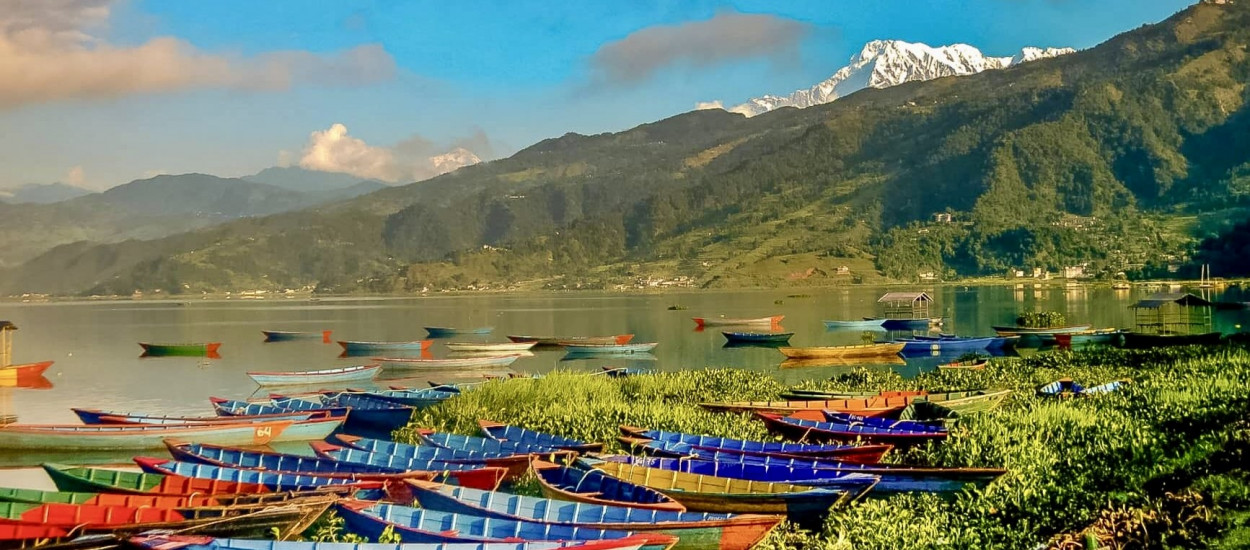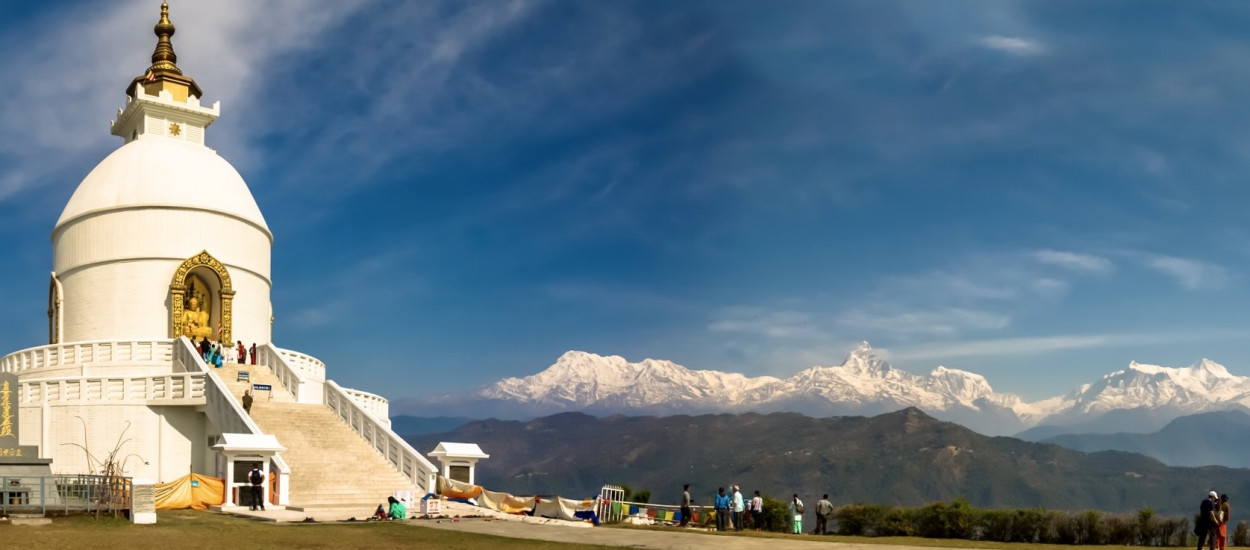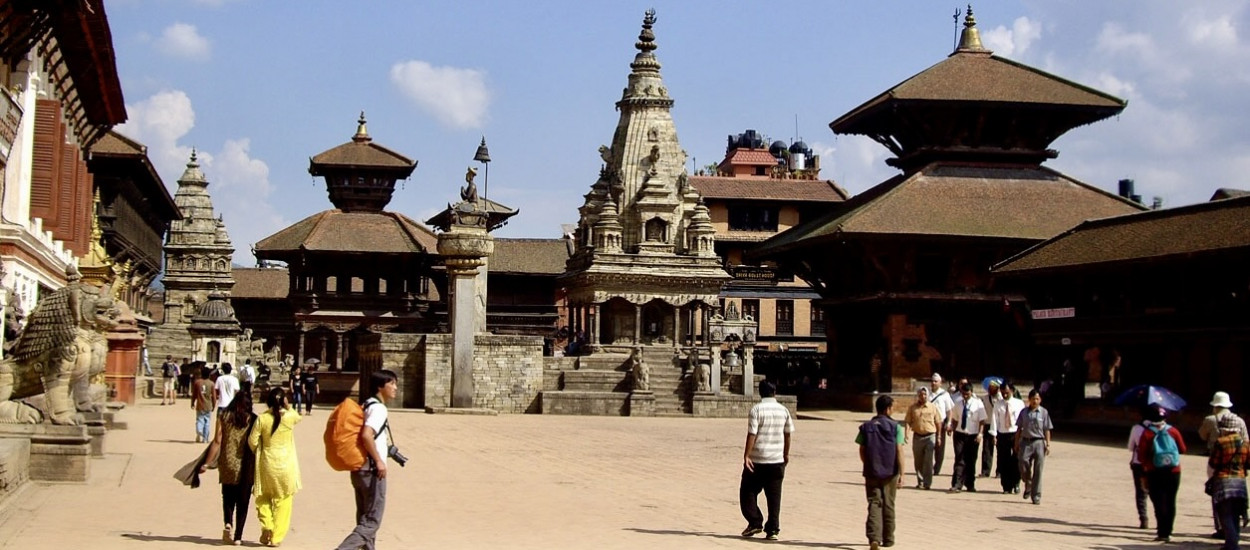Good to Know
Permits for Golden Triangle Nepal Tour (Kathmandu, Chitwan, and Pokhara)
When planning the Golden Triangle Nepal Tour, which includes the iconic destinations of Kathmandu, Chitwan, and Pokhara, it's important to be aware of the necessary permits and entry requirements to ensure a hassle-free experience.
-
Nepal Entry Visa: Travellers typically need a tourist visa to enter Nepal. This can be obtained on arrival at Tribhuwan International Airport in Kathmandu or in advance from a Nepalese embassy or consulate.
Visa Fees: The visa fee depends on the duration of stay. As of the latest information, fees are structured as follows: 15 days - USD 30, 30 days - USD 50, and 90 days - USD 125.
-
Cultural Site Entry Fees: In Kathmandu, entry fees for various cultural and historical sites like Durbar Squares, Pashupatinath Temple, and others may apply. These are generally included in the tour cost if you are with a guided tour (check the inclusion section).
-
Health and Travel Insurance: While not a permit, having comprehensive health and travel insurance is strongly recommended for all travelers to Nepal.
Understanding and adhering to these permit requirements is essential for a smooth and enjoyable Golden Triangle Nepal Tour. It's advisable to confirm all permit arrangements with your tour operator to ensure everything is in order before your journey begins.
Travel insurance for Golden Triangle Nepal Tour (Kathmandu, Chitwan, and Pokhara)
This trip takes you through the vibrant landscapes of Kathmandu, Chitwan, and Pokhara, securing comprehensive travel insurance is a crucial step. Travel insurance not only offers peace of mind but also provides essential protection against unforeseen circumstances. Here's what to consider when choosing travel insurance for this tour:
-
Medical Coverage: Ensure your policy includes significant medical coverage. Healthcare in Nepal can be costly for tourists, especially if evacuation or airlifts are needed. Coverage for altitude sickness is also vital if you plan to engage in high-altitude activities in or around Pokhara.
-
Trip Cancellation and Interruption: Choose a policy that covers trip cancellations and interruptions. This will protect you financially if you need to cancel or cut short your trip due to unexpected events like illness, family emergencies, or other unforeseen reasons.
-
Baggage and Personal Belongings: Coverage for lost, stolen, or damaged baggage and personal belongings is important, especially considering the multiple locations and activities involved in the tour.
-
Emergency Evacuation and Repatriation: This is crucial, especially for parts of the tour in remote areas like Chitwan National Park. Ensure that your policy covers the cost of emergency evacuation and repatriation back to your home country if necessary.
-
Adventure Activities Coverage: If your tour includes adventure activities like trekking in Pokhara, jungle safaris in Chitwan, or any other sports, make sure these are covered in your insurance plan.
-
24/7 Assistance Services: Opt for a policy that offers 24/7 assistance services. Having access to immediate help and advice can be invaluable in emergency situations.
-
Read the Fine Print: Before purchasing a policy, read the fine print to understand what is and isn’t covered. Pay special attention to any exclusions and limitations.
-
Validity in Nepal: Confirm that the insurance policy is valid for travel within Nepal and covers all regions and activities of your tour.
-
Duration of Coverage: Ensure the coverage spans the entire duration of your trip, from arrival to return.
Securing the right travel insurance for the Golden Triangle Nepal Tour can protect you against a range of travel-related risks, allowing you to enjoy the beauty and excitement of Kathmandu, Chitwan, and Pokhara with added confidence and security.
Packing List for Golden Triangle Nepal Tour (Kathmandu, Chitwan, and Pokhara)
Embarking on the Golden Triangle Nepal Tour, a journey through the varied landscapes of Kathmandu, Chitwan, and Pokhara, requires thoughtful packing to ensure you are prepared for the diverse experiences each destination offers. Here's a comprehensive packing list to guide you:
Clothing
-
Layered Clothing: Weather can vary significantly, so layered clothing is ideal. Include light shirts, sweaters, and jackets.
-
Trekking Gear: If you plan to trek in Pokhara, pack trekking pants, moisture-wicking shirts, and a good-quality trekking jacket.
-
Comfortable Footwear: Durable walking shoes for city tours and hiking boots for any trekking activities.
-
Jungle Safari Attire: In Chitwan, lightweight, long-sleeved shirts and trousers in neutral colors are best for safaris.
Accessories
-
Sunglasses and Hat: Essential for sun protection, especially in Chitwan and Pokhara.
-
Scarf or Shawl: Useful for chilly mornings and evenings, and when visiting religious sites.
Personal Items
-
Toiletries: Basic travel toiletries, including sunscreen and insect repellent for Chitwan.
-
Personal Medications: Along with a basic first-aid kit, carry any personal medications you may need.
Travel Documents
-
Passport and Visa: Ensure your passport is valid for at least six months beyond your stay, and keep your visa documents handy.
-
Travel Insurance Documents: Carry a copy of your travel insurance policy.
Electronics
-
Camera: With extra memory cards and batteries to capture the scenic beauty.
-
Mobile Phone and Charger: Plus a portable power bank.
-
Universal Travel Adapter: Nepal has a mix of plug types, so a universal adapter is necessary.
Miscellaneous
-
Backpack: for day trips and excursions.
-
Reusable Water Bottle: To stay hydrated and reduce plastic waste.
-
Binoculars are especially useful for wildlife spotting in Chitwan.
Cash and Cards: Local Currency (Nepalese Rupee): While major cards are accepted in cities, cash is essential for smaller transactions, especially in remote areas.
Snacks: Energy Bars and Snacks: Handy for long travel days or when hiking.
Remember, packing for the Golden Triangle Nepal Tour should be guided by the activities you plan to do and the time of year you are traveling. Always check the weather forecast and cultural norms to ensure you pack appropriately for your adventure in Nepal.
Meals during Golden Triangle Nepal Tour (Kathmandu, Chitwan, and Pokhara)
The Golden Triangle Nepal Tour, encompassing Kathmandu, Chitwan, and Pokhara, offers not just a visual and cultural feast but also a culinary journey through some of Nepal's most flavorful and diverse cuisines. Here's what to expect in terms of meals and dining experiences in each of these destinations:
Diverse Cuisine in Kathmandu
-
Kathmandu, the capital city, is a melting pot of culinary delights. Here, you can enjoy a range of Nepalese, Tibetan, and international cuisines.
-
Sample traditional dishes like Dal Bhat (lentils and rice), Momo (dumplings), and Newari cuisine, known for its unique flavours and ingredients.
-
Upscale restaurants and local eateries in areas like Thamel and Durbar Marg offer diverse dining options.
Local and International flavours in Pokhara
-
Pokhara is known for its relaxed atmosphere and scenic views, which are complemented by a variety of dining experiences.
-
Lakeside restaurants offer both local Nepalese dishes and international options, often with views of Phewa Lake.
-
Don’t miss trying the local fish dishes, particularly the trout, which is a specialty in Pokhara.
Traditional Meals in Chitwan
-
In Chitwan National Park, the dining experience is often an extension of the local culture.
-
Resorts and lodges typically serve traditional Tharu meals, which are simple yet flavorful, alongside standard Nepali fare.
-
Dining in Chitwan often includes buffets with a mix of local and international cuisines, catering to a variety of tastes.
Street Food and Snacks
-
Across all these destinations, street food offers an insight into Nepal's vibrant food culture. Safe and hygienic street food can be a delightful experience.
-
Snacks like Chatamari (rice crepe), Sekuwa (barbecued meat), and Samosas are popular.
Vegetarian and Vegan Options: Nepal is accommodating to vegetarians and vegans, with many dishes being naturally plant-based.
Beverages:
-
Traditional beverages like Chiya (spiced milk tea), Tongba (millet beer), and Raksi (local liquor) are worth trying.
-
Bottled water is recommended for drinking.
When dining in Nepal, it's always good to embrace local eating habits and customs. Many restaurants and eateries in tourist areas maintain high standards of hygiene, but it's wise to eat at reputable places, especially when trying street food. The culinary experience on the Golden Triangle Nepal Tour is as enriching as its scenic and cultural explorations, offering a taste of the country’s rich and varied gastronomic landscape.
Drinking Water during Golden Triangle Nepal Tour (Kathmandu, Chitwan, and Pokhara)
While embarking on the Golden Triangle Nepal Tour through Kathmandu, Chitwan, and Pokhara, one essential consideration is staying hydrated with safe drinking water. Here's what you need to know about water safety and options in these regions:
-
Tap Water Caution: Generally, tap water in Nepal is not safe for drinking without proper treatment. Avoid drinking tap water directly in Kathmandu, Chitwan, and Pokhara, especially in areas where water purity is questionable.
-
Bottled Water Availability: Bottled water is widely available and is a safe and convenient option for travellers. It can be purchased at hotels, restaurants, and stores in all three cities.Ensure the seal is intact when purchasing bottled water to avoid contamination.
-
Boiling Water: sure boilingPlease make sure that boiling water is an effective way to purify it. Most hotels and tea houses offer boiled water, which can be a reliable source for drinking.
-
Water Purification Tablets or Drops: Carrying water purification tablets or drops is a practical option, especially when travelling to remote areas or during treks around Pokhara.
-
Portable Water Filters: Portable water filters or purifying devices are useful, particularly for environmentally conscious travellers who wish to reduce plastic waste from bottled water.
-
Hydration Packs: For treks and long-day trips, carrying a hydration pack filled with purified water is advisable.
-
Avoid Ice in Drinks: Be cautious about consuming ice, as it may be made from untreated tap water. It's best to avoid it unless you're certain of its safety.
-
Hot Beverages: Opting for hot beverages like tea and coffee can be a safer choice, as the boiling process purifies the water.
-
Stay Hydrated: Nepal's varied altitude and climate can lead to quicker dehydration. Regularly drinking water is crucial, especially after physical activities like trekking or exploring cities.
-
Check with Your Accommodation: Many hotels and guesthouses provide filtered or purified water to guests. Always check with your accommodation about their water purification methods.
Ensuring access to safe drinking water during your Golden Triangle Nepal tour is essential for a healthy and enjoyable trip. Always prioritise safety and plan ahead, especially for day trips and excursions, to ensure you have sufficient, safe drinking water.
Transportation and Flights on Golden Triangle Nepal Tour (Kathmandu, Chitwan and Pokhara)
When embarking on the Golden Triangle Nepal Tour, which includes the vibrant destinations of Kathmandu, Chitwan, and Pokhara, understanding the transportation and flight options is essential for a smooth journey. Here's an overview of the transportation modes and flight details you can expect during this tour:
-
Airport Transfers: Airport transfers are usually included in tour packages, providing convenient travel to and from the airport.
-
Transportation: All tours and activities listed in the itinerary will be conducted using private vehicles such as cars, vans, minibuses, or large coaches, depending on the group size. Transfers will be arranged based on the selected package or option.
-
Flights: While road transport is common, there are also flight options from Kathmandu to Chitwan, Chitwan to Pokhara (only one flight) and Pokhara to Kathmandu. These flights shorten travel time significantly compared to road travel.
-
Road travel: Tourist buses and private vehicles are popular for road travel from Kathmandu to Chitwan. The journey offers scenic views of Nepal’s countryside and takes approximately 5–6 hours.
-
Transportation in Pokhara: Pokhara is well-equipped with local taxis, buses, and bike rentals. For guided tours, private vehicles are often used.
Understanding these transportation dynamics ensures a comfortable and efficient travel experience during the Golden Triangle Nepal Tour. Whether by road or air, each mode of transport offers its own unique view of Nepal's diverse landscapes.
Luggage during Golden Triangle Nepal Tour (Kathmandu, Chitwan, and Pokhara)
When embarking on the Golden Triangle Nepal Tour, which takes you through the distinct landscapes of Kathmandu, Chitwan, and Pokhara, efficient luggage management is key to a comfortable and hassle-free experience. Here are some tips and insights for handling your luggage during this diverse tour:
- Luggage Type and Size: Opt for a sturdy, medium-sized suitcase or a travel backpack that is easy to carry and manage. Avoid oversized luggage as it can be cumbersome during inter-city transfers and in areas with limited space.
Packing Smartly
-
Pack light and versatile clothing suitable for varying weather conditions. Layered clothing is ideal, as temperatures can fluctuate, especially in Pokhara and Kathmandu.
-
Include comfortable walking shoes or hiking boots if you plan to engage in trekking or extensive walking.
-
Separate Day Pack: Carry a smaller day pack for daily excursions to hold essentials like water, snacks, camera, and a light jacket. This is especially useful for jungle safaris in Chitwan and city tours in Kathmandu.
-
Secure and Label Your Luggage: Ensure your luggage is securely locked and clearly labeled with your contact information. This helps in easy identification and adds an extra layer of security.
-
Storage Options: Most hotels in Kathmandu, Chitwan, and Pokhara offer secure luggage storage facilities. Utilize these for storing any items you might not need for certain parts of the trip, such as city-specific or activity-specific gear.
-
Managing Luggage for Flights: If your tour includes domestic flights, be aware of baggage weight limits, which are typically lower than international flights. Pack accordingly to avoid excess baggage fees.
-
Laundry Facilities: Many hotels offer laundry services, allowing you to pack lighter and have clean clothes throughout your journey.
-
Preparedness for Outdoor Activities: For outdoor activities in Chitwan or Pokhara, include suitable gear like hats, sunscreen, insect repellent, and a lightweight raincoat.
-
Valuables and Electronics: Keep valuables and electronics in your carry-on or day pack. Use hotel safes where available for extra security.
-
Cultural Sensitivity in Clothing: Pack culturally appropriate clothing, especially for visiting religious sites in Kathmandu. This often means avoiding overly revealing clothes.
-
Health and Hygiene: Include a basic first-aid kit, personal medications, hand sanitizers, and other hygiene products.
Efficiently managing your luggage for the Golden Triangle Nepal Tour can significantly enhance your travel experience, allowing you to focus more on the breathtaking landscapes and rich cultural encounters that await in Kathmandu, Chitwan, and Pokhara.
Currencies Accepted During Nepal Visa for Golden Triangle Nepal Tour (Kathmandu, Chitwan, and Pokhara)
It's important to be aware of the currency requirements, especially concerning the visa fee. Understanding which currencies are accepted for your Nepal visa can ensure a smoother arrival process. Here’s what you need to know:
- Primary Currency: U.S. Dollar (USD): The U.S. Dollar (USD) is widely accepted and is the most commonly used currency for visa fees in Nepal. It's recommended to carry sufficient USD for visa payments.
Other Accepted Major Currencies
-
Besides the U.S. Dollar, Nepal’s immigration services also accept other major currencies for visa fees. These typically include the Euro (EUR), British Pound Sterling (GBP), and Australian Dollar (AUD).
-
It’s advisable to carry these currencies in smaller denominations for ease of payment and to avoid issues with change.
-
Nepalese Rupee (NPR): While the local currency, the Nepalese Rupee (NPR), is used within the country, it's less common for visa fees, especially at the airport.
-
Currency Exchange Services: Currency exchange services are available at Tribhuwan International Airport in Kathmandu. However, exchanging money beforehand to have the exact visa fee in an accepted currency can save time upon arrival.
-
Credit Card Payments: Some travelers have reported the availability of credit card payment options for visa fees at the airport, but this can be subject to change or availability. It’s safer to rely on cash payment.
-
Carrying Multiple Currency Options: To be prepared for any situation, it’s wise to carry a mix of USD, Euros, or GBP, along with some local Nepalese Rupees.
-
Avoiding High-Denomination Notes: High-denomination notes may be harder to change, so it’s recommended to carry smaller denominations for the visa fee and other immediate expenses upon arrival.
-
ATMs in Kathmandu: ATMs are widely available in Kathmandu and major cities for withdrawing local currency, but it’s best to have the visa fee ready in acceptable currency upon entry.
-
Informing Your Bank: If you plan to use your card in Nepal, inform your bank beforehand to avoid any issues with transactions in a foreign country.
Having the correct currency for your visa fee can streamline your entry process, letting you commence your Golden Triangle Nepal Tour with ease. Always check the latest information before your departure, as currency policies can change.
Internet and Phone access on Golden Triangle Nepal Tour (Kathmandu, Chitwan, and Pokhara)
Staying connected during the Golden Triangle Nepal Tour, which covers Kathmandu, Chitwan, and Pokhara, is crucial for both convenience and safety. Here's what you need to know about internet and phone access in these regions:
Mobile Network Coverage
-
Kathmandu and Pokhara have strong mobile network coverage, including 3G and 4G services. Most areas, including tourist spots, hotels, and restaurants, will have good cellular reception.
-
In Chitwan, network coverage is generally good, especially in and around major lodges and tourist areas. However, it may be less reliable in more remote parts of the national park.
Local SIM Cards
-
Purchasing a local SIM card upon arrival in Kathmandu can be a cost-effective way to stay connected. Major providers include Ncell and Nepal Telecom.
-
To buy a SIM card, you'll need a passport copy and a passport-sized photo. SIM cards are available at Tribhuwan International Airport and numerous stores in the cities.
Wi-Fi Availability
- Most hotels, guesthouses, and cafes in Kathmandu and Pokhara offer free Wi-Fi access to their customers. The connection quality can vary, with higher-end establishments generally providing better speeds.
- In Chitwan, Wi-Fi is available in most lodges and hotels, but the connection may be slower, especially in remote areas.
Internet Cafes
- Internet cafes can be found in Kathmandu and Pokhara, offering internet access at a nominal fee. They also provide services like international calling, printing, and scanning.
Using International Roaming: If you prefer using your own mobile number, check with your service provider about international roaming options. Be aware of the charges, as roaming can be expensive.
Power Banks and Chargers
-
Carry a power bank for charging your devices, especially during day trips or in areas where power cuts are common.
-
A universal travel adapter is essential, as socket types can vary in Nepal.
-
Emergency Contact Numbers: Save local emergency numbers, embassy contact details, and your tour operator’s contact information on your phone.
-
Data Security: When using public Wi-Fi networks, be cautious about the security of your online activities. Avoid accessing sensitive personal or financial information.
-
Social Media and Communication Apps: Apps like WhatsApp, Viber, and Skype are popular for communication in Nepal and can be handy for both local and international calls and messaging.
-
Offline Maps and Guides: Download offline maps and travel guides on your phone for times when you might not have internet access.
Staying connected during your journey in the Golden Triangle Nepal Tour enhances the experience, making it easier to navigate, communicate, and share your adventures. With the right preparations, you can ensure reliable internet and phone access throughout your trip in Kathmandu, Chitwan, and Pokhara.
Health Issues During Golden Triangle Nepal Tour (Kathmandu, Chitwan, and Pokhara)
Traveling through the Golden Triangle Nepal Tour, encompassing the diverse regions of Kathmandu, Chitwan, and Pokhara, can be an enriching experience, but it's essential to be aware of potential health issues. Here’s a guide to help you stay healthy and safe:
- Altitude Sickness in Pokhara: While Pokhara itself isn't at a very high altitude, some treks or excursions in the surrounding areas can lead to altitude sickness. Be aware of symptoms like headache, nausea, and dizziness. Ascend gradually and stay hydrated.
Water and Food Safety
-
Stick to bottled or purified water, as tap water isn't safe for drinking. Avoid ice in drinks unless you're sure it's made from purified water.
-
Eat at reputable restaurants and avoid street food if you have a sensitive stomach. Ensure that food is cooked thoroughly and served hot.
-
Mosquito-Borne Diseases in Chitwan: Chitwan, being in a subtropical area, poses a risk of mosquito-borne diseases like malaria and dengue fever. Use insect repellent, wear long-sleeved clothing, especially in the evenings, and consider staying in accommodations with mosquito nets.
-
Traveler’s Diarrhea: A common issue for travelers, it can be avoided by eating at clean places and avoiding raw or undercooked food. Carry anti-diarrhea medication as a precaution.
-
Vaccinations: Make sure your vaccinations are up-to-date before traveling. Hepatitis A, Typhoid, and Tetanus are commonly recommended for Nepal.
-
Air Pollution in Kathmandu: Kathmandu can have high levels of air pollution. If you have respiratory issues, consider wearing a mask and limiting exposure on high-pollution days.
-
Sun Protection: High UV exposure, especially in higher altitudes, requires sun protection. Use sunscreen, sunglasses, and hats to protect yourself.
-
Physical Fitness: Some activities, especially in Pokhara, may require good physical fitness. Prepare accordingly and know your limits to avoid injuries.
-
Medical Facilities and Insurance: Familiarize yourself with the locations of reputable medical facilities in Kathmandu, Chitwan, and Pokhara. Ensure you have travel health insurance that covers medical treatment and evacuation.
-
Personal Medication and First-Aid Kit: Bring any personal medication you need, as specific drugs might not be available in Nepal. A basic first-aid kit is also advisable for minor health issues.
-
Hygiene Practices: Regular handwashing and use of hand sanitizers can prevent the spread of germs.
By taking these precautions and being aware of the health risks, you can enjoy a healthy and fulfilling experience on your Golden Triangle Nepal Tour. Preparation and prevention are key to tackling health issues in Kathmandu, Chitwan, and Pokhara.
Trip Extensions on Golden Triangle Nepal Tour (Kathmandu, Chitwan, and Pokhara)
The Golden Triangle Nepal Tour, encompassing the vibrant experiences of Kathmandu, Chitwan, and Pokhara, offers a splendid introduction to Nepal's diverse landscapes and cultures. For those wishing to delve deeper, several trip extensions can enrich your journey. Here’s a guide to popular extensions:
Trekking in the Annapurna or Everest Region
-
Extend your trip with a trek in the famous Annapurna region, accessible from Pokhara. Options range from the Poon Hill trek, ideal for beginners, to the more challenging Annapurna Base Camp trek.
-
For a more adventurous extension, consider trekking in the Everest region, offering breathtaking views of the world’s highest peak.
-
Lumbini - The Birthplace of Buddha: A spiritual extension to Lumbini, the birthplace of Lord Buddha, can be a serene experience. Located in the Terai plains, this UNESCO World Heritage site is a significant pilgrimage spot with numerous monasteries and a peaceful ambiance.
-
Historical Bhaktapur and Patan: Explore the ancient cities of Bhaktapur and Patan near Kathmandu. These cities boast rich Newari culture, intricate architecture, and historical significance, with well-preserved palaces and temples.
-
Adventure Sports in Pokhara: For adrenaline seekers, Pokhara is the hub of adventure sports in Nepal. Extend your stay to enjoy activities like paragliding, ultra-light flights, zip-lining, or bungee jumping.
-
Wildlife Excursions in Bardia National Park: Wildlife enthusiasts can extend their trip to Bardia National Park in the far western region of Nepal. It's less crowded than Chitwan and offers a higher chance of spotting elusive wildlife, including the Bengal tiger.
-
Exploring the Upper Mustang Region: For a unique cultural extension, consider trekking to Upper Mustang. Known as the “Last Forbidden Kingdom,” it offers a starkly beautiful landscape and a glimpse into traditional Tibetan culture.
-
Relaxing in Nagarkot or Dhulikhel: For a peaceful retreat, extend your trip to Nagarkot or Dhulikhel. These hill stations near Kathmandu offer stunning Himalayan views and are ideal for relaxation and nature walks.
-
Cultural Immersion in Ghandruk or Bandipur: Experience authentic Nepalese village life in Ghandruk or Bandipur. These villages offer cultural immersion with traditional homestays and panoramic mountain views.
-
River Rafting on the Trishuli River: Add an adventurous river rafting experience on the Trishuli River, offering thrilling rapids and a unique way to view Nepal’s natural beauty.
-
Mindfulness and Yoga Retreats: Consider joining a yoga or mindfulness retreat, widely available in Kathmandu and Pokhara, for a rejuvenating extension to your trip.
Each of these extensions offers a unique way to deepen your exploration of Nepal, beyond the classic Golden Triangle Tour. Whether seeking adventure, wildlife, spiritual enrichment, or cultural immersion, Nepal’s diverse offerings cater to a wide range of interests and provide opportunities for an unforgettable extended journey.
Tipping for Golden Triangle Nepal Tour (Kathmandu, Chitwan, and Pokhara)
Tipping is a customary practice in Nepal, and understanding the norms can enhance your experience on the Golden Triangle Nepal Tour, covering Kathmandu, Chitwan, and Pokhara. While tipping isn't mandatory, it is highly appreciated in the service industry. Here are some guidelines:
Tour Guides and Drivers
-
For tour guides, a general guideline is around USD 10-15 per day, depending on the level of service and group size.
-
Drivers typically receive around USD 5-10 per day. If they've provided exceptional service, going above and beyond, you might consider tipping more.
Hotel Staff
-
For bellboys or porters, a tip of USD 1-2 per bag is customary.
-
Housekeeping staff can be tipped similarly, around USD 1-2 per day, left in the room at the end of your stay.
-
Restaurant and Cafe Tipping: In restaurants and cafes, leaving a tip isn't as common as in Western countries, but it's becoming more accepted, especially in tourist areas. A tip of around 5-10% of the bill is appreciated for good service.
-
Trekking and Adventure Activities: If your tour includes trekking or other adventure activities, tipping the support staff (like porters and trekking guides) is standard. Around USD 5-10 per day for guides and USD 3-5 per day for porters is typical.
-
Safari Guides in Chitwan: For jungle safari guides in Chitwan, a tip of USD 5-10 per safari is reasonable. If you're part of a group, this amount can be pooled together.
-
Spa and Massage Services: If you're indulging in spa or massage services, a tip of 5-10% is customary, depending on the quality of the service.
-
Currency for Tipping:Tips can be given in Nepalese Rupees or USD. Ensure you have small denominations for ease of tipping.
-
Cultural Sensitivity: While tipping is appreciated, it's also important to do so in a respectful manner. Avoid over-tipping as it can sometimes lead to discomfort or embarrassment.
-
Discretion and Voluntary Basis: Tipping should always be based on the quality of service received and is entirely at your discretion.
-
Consult with Tour Operators: If unsure, consult with your tour operator or hotel staff for specific tipping recommendations in various situations.
Understanding the tipping culture in Nepal ensures that you can show appreciation for the services received during your Golden Triangle Nepal Tour in a way that is respectful and appropriate to local customs.
For more information, please follow link more Information.
